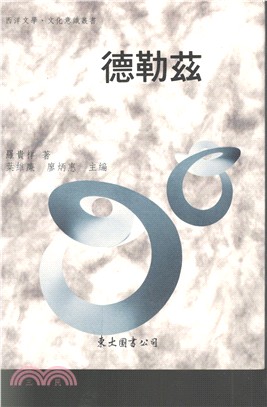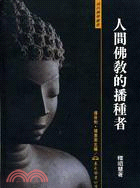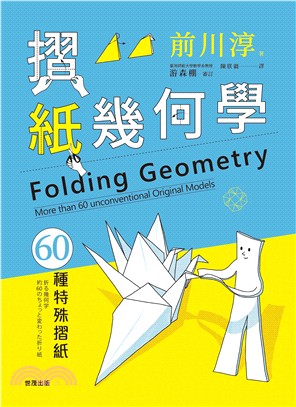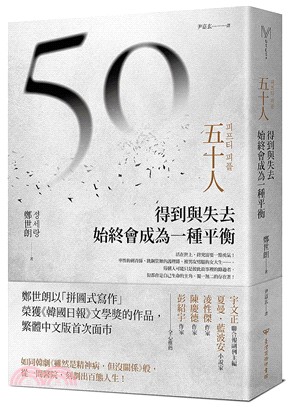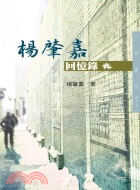The Holy Thief
- ISBN13:9780312552695
- 出版社:St Martins Pr
- 作者:William Ryan
- 裝訂/頁數:平裝/345頁
- 規格:21.6cm*13.3cm*3.2cm (高/寬/厚)
- 出版日:2011/11/22
商品簡介
--Oline H. Cogdill, Florida Sun-Sentinel
Moscow, 1936, and Stalin's Great Terror is just beginning. In a church, a woman is found dead, her body on display. Captain Alexei Korolev of the Criminal Investigation Division of the Moscow Militia is assigned, but the NKVD is watching and exile is a real possibility. Committed to the case, Korolev enters the realm of the Thieves, rulers of Moscow's underworld. But as more bodies are found, Korolev begins to question whom he can trust and who are the real criminals.
With Alexei Korolev, William Ryan has given us one of the most compelling detectives in modern literature, a man who will lead us through a fear-choked Russia to find the only thing that can save him-the truth.
作者簡介
WILLIAM RYAN was born in London in 1965 and attended Trinity College, Dublin. He practiced briefly as a barrister before completing his Masters in Creative Writing at St Andrews University. His work has appeared in the short story collection, Cool Britannia. He lives in London with his wife. The Holy Thief is his first novel.
名人/編輯推薦
"Without a doubt, The Holy Thief is one of the best historical mysteries I've read in the last ten years."
-David Liss
"One of the year's most exciting [debuts] . . . While the search for Russian icons will bring to mind Martin Cruz Smith's brilliant Gorky Park, Ryan puts a fresh, original spin on the briskly paced The Holy Thief."
-Oline H. Cogdill, Sun-Sentinel
"Ryan, who merits comparison to Tom Rob Smith, makes palpable the perpetual state of fear. . . . Readers will hope Korolev has a long career ahead of him."
-Publishers Weekly (starred review)
書摘/試閱
It was later than usual when Captain Alexei Dmitriyevich Korolev climbed the steps in front of Number 38 Petrovka Street, headquarters of the Moscow Militia's Criminal Investigation Division. The morning had started badly, wasn't getting any better and he still hadn't shaken off the pounding vodka headache from the night before, so it was with weary resignation rather than Stakhanovite enthusiasm that he pushed open one of the heavy oak doors. It took his eyes, dazzled from walking into the flat morning sun, a moment to adjust to the relative darkness of the vestibule, and it didn't help that thick clouds of masonry dust swirled around where he'd expected to find uniformed duty officers and bustling activity. He stopped for a moment, confused, wondering what on earth was going on and looking for a source of all the dust and debris. He was rewarded with a blurred movement that shifted the billowing haze on the landing-up where the statue of former General Commissar of State Security, Genrikh Grigoryevich Yagoda, stood. The movement was cut short by the crash of something very solid hitting what he strongly suspected was the plinth on which the commissar's statue rested. The noise, amplified by the marble floor and walls of the atrium, hit Korolev like a slap.
Korolev moved forward warily and began to climb the staircase toward the landing where the statue stood, fragments crunching underfoot. The commissar, swathed in blankets, was a muffled shape around the base of which four workers, stripped to the waist, toiled with crowbars, hammers and a mechanical drill which now thudded into action. Their objective appeared to be the statue's removal, but the plinth appeared to have other ideas. As Korolev approached, a worker looked up at him and smiled, white teeth cracking open a face plastered with gray dust.
"They meant the Comrade Commissar to stay here until the building fell down around him, that's for sure," he shouted over the racket. "He's cemented into the floor itself. We'll be lucky to get him out in one piece."
Korolev saw the sledgehammer, wielded by one of the worker's comrades, arc through the air once again, hitting a metal chisel that scattered debris in all directions as it wedged itself further underneath the marble block on which the commissar stood. Korolev swallowed several times in an attempt to return some saliva to a tongue that felt like he'd eaten sand.
"There. He shifted. We'll have him out yet," the hammer-wielder called to his fellows, spitting. The gob landed black on a piece of rubble at his feet. Korolev nodded thoughtfully, a stratagem he found useful when he'd no idea what was going on, and took a tentative step forward. As far as he was aware, Yagoda was still a senior Politburo member and entitled to the respect such a position was due-but clearly something had changed if his statue was being removed.
Korolev mumbled a gruff but firm, "Good morning, Comrades," as he passed the workmen, thinking that in Moscow, in October of the year of our Lord nineteen hundred and thirty-six, it was best not to comment on such things, particularly not if one had a hangover. Korolev was a man of well above average height, at least according to the norms published by the Ministry of Health the week before, standing close to six foot tall. He was also above the average weight for a Soviet citizen, but this he put down to his height and certainly not overeating, as if such a thing were possible in this period of transition to full Communism. Anyway, being his size had its advantages when a little muscle was needed.
He looked like what he was, a Militia detective of considerable experience. It probably didn't help that he had a solid face, the kind that policemen often had, with a broad jaw and wide cheekbones and skin raw from years in the sun and the snow. Even the short brown hair clinging to his scalp like dead grass marked him out as a cop. Curiously, however, the thick ribbon of a scar that ran from his left ear to the tip of his chin, a souvenir of an encounter with a White Cossack during the Civil War, made him seem more genial than ferocious, and his eyes, kind and warily amused, saved him from looking like a bruiser. For some reason those eyes made citizens consider Korolev a good sort, even if he happened to be arresting them, and more often than not they found themselves disclosing thoughts and information to him they'd really have preferred not to. But the eyes were misleading; Korolev had fought his way from the Ukraine to Siberia and back again for seven long years, against Germans, Austrians, Poles and anyone else who pointed a gun in his direction, and come through all of it more or less intact. When necessary, Captain Alexei Dmitriyevich Korolev wasn't soft-on the contrary.
Korolev scratched his neck as he mounted the stairs toward the second floor and considered what the removal of Commissar Yagoda's statue might mean for the Moscow Criminal Investigation Division. Up until now the Workers' and Peasants' Militia, to give the Soviet Union's regular police force its full title, included among its responsibilities maintaining public order, directing traffic, guarding important buildings, and sundry other tasks, not least of which was, of course, the investigation and prevention of criminal activity-which was where he and the rest of Moscow CID came in. Most of the political work was left to the NKVD-State Security-although, when you lived in a worker state, almost everything was political to some extent. In some people's eyes, any crime was an attack on the entire socialist system, but the distinction between traditional crimes and political crimes still remained, for the moment at least. Of course, the Militia uniforms often helped the NKVD with political matters-even the Red Army did that from time to time-but generally Korolev and the other Militia detectives had been left to do what they were best at, which was tracking down and catching the perpetrators of serious crimes that did not stray into the political realm. As a result, when a Muscovite referred to 38 Petrovka Street, the home of Moscow CID, it was in the same way a Londoner might refer to Scotland Yard, and was completely different from how they might speak of the Lubianka, if they even dared mention the feared headquarters of the NKVD. Korolev hoped the positive perception of Petrovka Street would persist in these times of change.
The awkward truth of the matter, however, was that now the Militia, and therefore Moscow CID, formed part of the Ministry of State Security, and when these days citizens referred to the "Organs"-the Organs of State Security-they meant both the NKVD and the Militia, and everyone knew the Militia's role might well be changed to a more political one by the new commissar, Ezhov. What was more, judging from his statue's removal, Ezhov's predecessor's arrest might well be imminent, if it hadn't happened already. And if that happened, then a purge of the Organs would be likely to follow. Korolev knew the pattern by now-he had one of the highest detection rates in the department but no one would be safe if there was a purge. He'd seen too much in the last few years to be in any doubt of that.
Korolev entered Room 2F with a greeting that was closer to a grunt than a pleasantry, turned toward the coat hooks on the back of the door and began to maneuver himself out of his winter coat, which was tighter across the shoulders than was comfortable since he'd last worn it six months before. The room was painted battleship gray and furnished with four desks, two facing two, and eight filing cabinets that lined the walls. It smelled of men and cigarettes, and the light that streamed in through the window struggled against the smoke that the three other investigators already present were furiously producing. For decoration the walls had a functional map of Moscow and a portrait of Stalin. Up until yesterday there had also been a photograph of Commissar Yagoda, but now there was only a square patch of lighter paint. That fact alone was enough to make anyone light up a cigarette.
Korolev finally succeeded in peeling the coat from his body, revealing his seldom-worn uniform. He turned and found he had the complete attention of his colleagues' pale faces and round eyes. Three cigarette ends flared as one as they regarded him. Korolev shrugged, noticing that his uniform was also tighter since the last time he'd worn it, and nodded to them.
"Good morning, Comrades," he said, once again, but this time more distinctly. Larinin recovered first.
"What time is this to come to work, Comrade? It's well past nine o'clock. It's not what the Party expects. It's my duty to raise it at the Works Council."
Larinin looked like a pig in Korolev's opinion, and the chipped and broken gray teeth that snarled between his fleshy lips looked like a pig's teeth. His voice was higher than usual today, however, and Korolev noticed how the pudgy fingers that held his cigarette were shaking slightly. He's rattled, Korolev thought, looking at him, and wasn't surprised. He was always careful of the bald investigator with the belly that spilled over the desk like a tidal wave, but today he'd be especially careful. The hammer blows still echoing up the stairwell might mark the end for a political man like Larinin. The desk, after all, had belonged to Knuckles Mendeleyev until a short time before, and Larinin had won no friends with the way he'd gained it. Mendeleyev had been a hard and effective investigator who'd been the scourge of the Moscow Thieves until Larinin, a traffic policeman, had denounced him for spreading anti-Soviet propaganda. Now Larinin sat among Mendeleyev's former colleagues, filling Knuckles' space, if not his shoes, while no one knew for certain where Knuckles had gone except that it was probably somewhere in the far north and against his will and all because of a stupid joke about the Chekists that the traffic policeman had overheard and exploited. So it was no wonder that Larinin looked nervous, knowing as he did how quickly the wind could shift these days, and conscious that after three weeks sitting among them he had not resolved a single case. It was hardly an achievement to boast of to his Party friends.
"I know what time it is, Grigoriy Denisovich," Korolev said. "I had to visit Staff Colonel Gregorin at the Lubianka. He kept me waiting. Would you like me to give you his telephone number so that you can check?"
Looking down, he noticed that moths had been at his sleeve over the summer. He rubbed the chewed fabric and sat down at his desk, placing his fur hat in the bottom drawer where it belonged. He turned on his reading light and began to look through the papers in the file he was due to forward to the procurator's office later that day, but paused as he became aware of the strange silence that had fallen over the room.
"Comrades?" Korolev asked, looking up. The other investigators were staring at him in open-mouthed fascination, a mixture of terror and pity on their faces. Larinin was wiping sweat from his hairless scalp with his shirt sleeve.
"The Lubianka, Alexei Dmitriyevich?" Junior Lieutenant Ivan Ivanovich Semionov said. Semionov was the youngest of the investigators, only twenty-two, although sometimes, as now, he seemed even younger. He resembled a Komsomol poster boy with his floppy blond hair, almost feminine good looks and straightforward demeanor. Semionov had only been with them for two months-most of it spent assisting Korolev with simple tasks and learning the ropes-and had yet to learn when not to say what was on his mind.
"Yes, Ivan Ivanovich," Korolev replied. "Comrade Gregorin wants me to give a lecture to the final-year cadets at the NKVD Higher School."
The three men relaxed. Larinin's pasty face seemed suddenly a little less pasty, Semionov smiled and Dmitry Alexandrovich Yasimov, a wiry fellow of Korolev's age with a professor's face and a cynical wit, leaned back in his chair, wincing as the movement stretched a stomach wound, and pulled at the end of his thin, barbered mustache.
"So, Lyoshka, that's why you're wearing the uniform. I suppose we thought there might be some other reason. It's rare to see you in one." Yasimov used the familiar form of Korolev's name, as was his right after twelve years of working and drinking with him. Korolev looked at the chewed sleeve and scowled. It was true; he preferred to wear civilian clothes. Nothing stopped a citizen confiding in an investigator more surely than a brown uniform, in his opinion at least.
"It needed an outing, mind you. Look at this-the damned moths have been at it."
"And it looks a little tighter now. Putting on weight, are you?" Yasimov's eyes twinkled and Korolev smiled, the old saber scar that ran along his jaw drawing his left eye to the side and giving him a dreamy look, accentuated by the way his eyes lurked indistinctly under his thick eyebrows. Yasimov would joke that Korolev's eyes seemed always to be focused on his dinner. But Korolev, while acknowledging an element of truth in the assertion, thought that this dreamy quality made people trust him, and that was certainly useful in their line of work.
"Muscle, Dmitry. I've been in training. Keeps me sharp, stops old ladies from stabbing me."
Semionov snorted behind a hastily opened file and Larinin forgot his troubles enough to laugh openly. Even Yasimov had to smile as he rubbed at the spot where an elderly woman had placed the business end of a pair of scissors when he'd tried to help her across the street. It was the uniform, she'd told them later, and Korolev hadn't been surprised; uniforms made people nervous these days. She'd thought Yasimov was going to arrest her, even though she'd done nothing wrong, and Korolev had had to lift her gently by the arms to stop her puncturing Yasimov for a second time. Even the innocent were jumping at shadows these days, and she'd just happened to have a pair of scissors in her fist when she did so. Korolev tried not to laugh, but to get the better of his friend was such a rare event that he had to put his hand in front of his mouth. Yasimov shook his head in admonishment.
"Very funny. But yes, I'm following your example now, Lyoshka. Strictly plain clothes after that experience. Anyway, tell us, if you're passing on your wisdom to young Chekists, on what subject will you be exhibiting your pedagogical abilities?"
Korolev had found the file he was looking for and now it lay open in front of him; the perpetrator's arrest photograph staring up at him, bruises dark on his pale young face. It hadn't been a pleasant case, but still he felt his conscience shy at the sight of the man's battered features. Korolev hadn't been in the room when they'd roughed the youth up, and he couldn't really condemn the uniforms who'd done it-they each had sisters and daughters, after all. Nonetheless, punishment was best left to the People's Courts-otherwise things would be no better than before the Revolution.
Distracted by the photograph, he wasn't really paying attention to Yasimov and when he looked up he cursed under his breath, half-smiling, seeing that Semionov and even Larinin had warmed to the game.
"Come on, Comrade," Yasimov said, "it's a great honor. You must share the news with your fellow workers. In what area of expertise are you so pre-eminent that a staff colonel should have picked you, an aging captain in Moscow CID, to address the bright young Chekists of the F. E. Dzerzhinsky Higher School of State Security? The cream of Soviet youth, no less. Even our boy hero here wouldn't get a look in with that lot."
He nodded his head toward Semionov, who smiled good-naturedly. The three of them waited for Korolev's answer, knowing it already.
"Case file management, you rat," Korolev said in a rush, unable to stop a smile at his own expense. He was rewarded with a burst of laughter from the other three men.
"A worthy topic, Alexei," Yasimov said, pleased that the natural order of things had been re-established. "The little Chekists will learn a thing or two from an old hand like you."
"I hope so, Dimka, although I'm surprised they didn't think to ask you to give a lecture on self-defense."
Yasimov wagged a warning finger at Korolev, who was somewhat surprised himself to score off his friend twice in the same morning. Semionov was coughing behind his file and Larinin was looking for something in his bottom drawer, shoulders heaving. Yasimov was about to respond when a loud crash echoed up the stairwell. It sounded like a former General Commissar of State Security's statue collapsing to the floor and breaking into several pieces, blankets notwithstanding. In the silence that followed the four of them looked at each other. The noise was a reminder, particularly to Larinin, that now was the time for results, not for idle laughter. Soon the only sounds in the room were the rustle of pages being turned in case files and the scratch of Soviet-made nibs against Soviet-made paper. Comrade Stalin looked down on them with approval.
It was Korolev's habit to review every page of his case file before it went to the procurator's office. On the one hand, the purpose of the exercise was to ensure the file contained everything the procurator's office needed to ensure a successful conviction, but Korolev also performed the task to see if he could identify anything he'd missed in the course of the investigation that, with hindsight, might have brought the matter to a close sooner. It was a practice that often yielded interesting results and was never entirely a waste of time. Sometimes Korolev found patterns of behavior repeating themselves that he found intriguing and stored away for future reference. Now, as he looked at the student Voroshilov's photograph, Korolev wondered whether the rapist would ever have committed his crimes if he'd stayed in the small town near Smolensk where he'd grown up. Obviously, he must have had an inclination toward this kind of violence, but, perhaps, if he hadn't been sent to study in Moscow, he might have settled down, married a nice girl and contributed usefully to society. Instead, when he'd been accepted at one of the new Moscow engineering academies, he'd discovered the anonymity, and opportunity, at the heart of a Soviet city in transition, where people, buildings and even entire neighborhoods were in a constant state of flux. Workers coming and going, factories opening, new construction projects: the development of Moscow into a capital worthy of the great Soviet Revolution had given young Voroshilov the space and opportunity to rape six young women over a four-week period, and he'd taken advantage.
Excerpted from The Holy Thief by William Ryan.
主題書展
更多主題書展
更多書展本週66折
您曾經瀏覽過的商品
購物須知
外文書商品之書封,為出版社提供之樣本。實際出貨商品,以出版社所提供之現有版本為主。部份書籍,因出版社供應狀況特殊,匯率將依實際狀況做調整。
無庫存之商品,在您完成訂單程序之後,將以空運的方式為你下單調貨。為了縮短等待的時間,建議您將外文書與其他商品分開下單,以獲得最快的取貨速度,平均調貨時間為1~2個月。
為了保護您的權益,「三民網路書店」提供會員七日商品鑑賞期(收到商品為起始日)。
若要辦理退貨,請在商品鑑賞期內寄回,且商品必須是全新狀態與完整包裝(商品、附件、發票、隨貨贈品等)否則恕不接受退貨。














